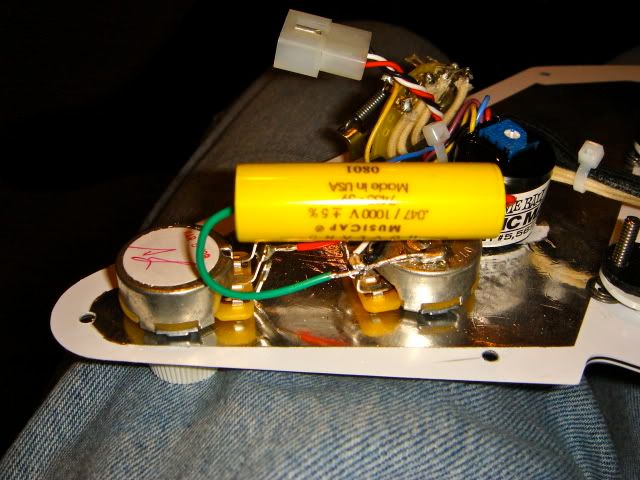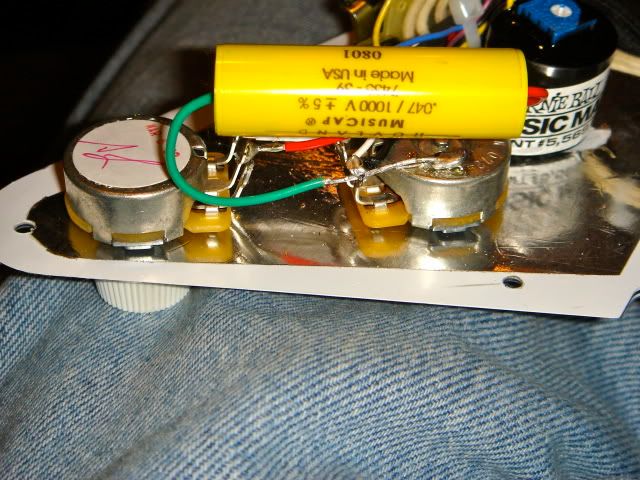lenny
Well-known member
Hey gang as with all my guitars i tend to open em up and put in a Hovland Musicap...to replace the .047 chicklet tone coupler.....the reason i do this is the MusiCaps deliver exceptional dynamics, speed, focus, correct timbre and depth of field, and true inter-transient silence.
Separate layers of polypropylene film & conductive foil deliver superior clarity that metalized capacitors can not.
most audiophiles use these in their hi end amps and speakers and such ....the one i use is the 1000v .047 ...same value as the original ...but the chicklet cap is worth .20 cents and the hovland cap almost 20.00 bucks....the difference in caps is like the difference in a Musicman guitar VS an Epiphone
after the install it takes about 10 hours to break in the cap....but the difference is night and day ....i know ,i know... its a freakin fabulous guitar as is ....and yip your right BUT i have a couple of guys with the same guitars(just AL's Not the BFR) and mine just has something about it after the tonecap change ...it doesnt change the tone it enhances whats already there...clearer mids and bottom crisper clearer high's and a snap that i cant get without it....i also use these on my Telecasters...and i use the .022's in my Les Paul......try one out you will be pleasantly surprised!!!




unlike MOST caps Hovland Musicap's are Directional....Green to the volume and red to the tone

Separate layers of polypropylene film & conductive foil deliver superior clarity that metalized capacitors can not.
most audiophiles use these in their hi end amps and speakers and such ....the one i use is the 1000v .047 ...same value as the original ...but the chicklet cap is worth .20 cents and the hovland cap almost 20.00 bucks....the difference in caps is like the difference in a Musicman guitar VS an Epiphone
after the install it takes about 10 hours to break in the cap....but the difference is night and day ....i know ,i know... its a freakin fabulous guitar as is ....and yip your right BUT i have a couple of guys with the same guitars(just AL's Not the BFR) and mine just has something about it after the tonecap change ...it doesnt change the tone it enhances whats already there...clearer mids and bottom crisper clearer high's and a snap that i cant get without it....i also use these on my Telecasters...and i use the .022's in my Les Paul......try one out you will be pleasantly surprised!!!




unlike MOST caps Hovland Musicap's are Directional....Green to the volume and red to the tone

Last edited:


